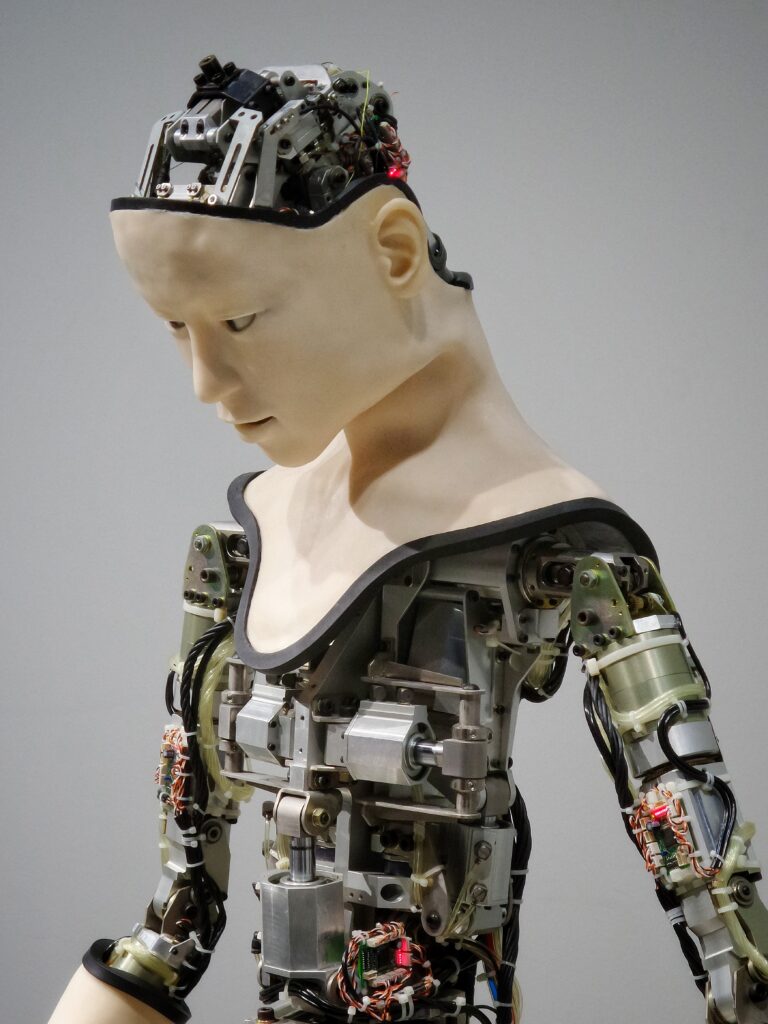While the past 2 years have been incredibly difficult for many people, they have also shown how deep our capacity for innovation runs. Towards the end of 2019, there were an estimated 10 years of technological growth in e-commerce — a decade compressed into the span of 3 months. McKinsey & Company predicts that there will be more technological progress in the next decade than there was in the last 100 years combined.
So, what can we expect? Let’s look at some of 2022’s more anticipated developments.
Automation
Automation is already here, but it is taking on many more forms. Not only are more complex robotic operations possible in manufacturing, but automation is stretching into intellectual spheres too. More powerful computing and more sophisticated algorithms allow businesses to tap into troves of data, converting information into insightful, automated decision-making processes.
By 2022, nearly 45% of repetitive work tasks will be automated and augmented through the use of digital assistants, powered by AI and robotics, according to International Data Corporation (IDC).
“The pandemic created a business necessity for increasing technology investment and accelerating digital transformation timetables,” says Meredith Whalen, chief research officer at IDC.
“Many of these initiatives that started as ways to mitigate the economic impact of Covid-19 have become permanent roadmap requirements for Future Enterprise success in the digital economy,” Whalen explains.
Experts believe that around half of all existing work activities could be automated in the next few decades, as automation and virtualisation become more common.
Automation, in a sense, is also creeping forward in the realm of transport. While the technology has some maturing to do, the crowded autonomous vehicles market will get more competitive in 2022 with the first high-speed autonomous racing competition. It will take place at the upcoming CES 2022, the largest trade show in the world. The goal of the event is to showcase technology for the commercialisation of fully autonomous vehicles and advanced driver assistance systems.
Artificial Intelligence
In a world beset by a virus, and the worry of further episodes in the future, artificial intelligence (AI) is helping to secure medical solutions. By combining AI with high-performance computing, scientists are able to uncover answers more quickly, explains Tate Cantrell, CTO of Verne Global, the datacentre operator.
“A great example of this is Peptone, which has developed an algorithm to work out how proteins behave and aggregate in the human body,” Cantrell says. The research is being used to accelerate the development of vaccines and other medicines, reducing costly and time-consuming lab work.
For many experts, however, it is AI’s command of language that is likely to make the greatest strides in 2022. Natural language processing (NLP) has been steadily progressing since the advent of the Generative Pre-trained Transformer (GPT). Many expect that the first model with more than 10 trillion parameters will arrive 2022. It will likely come from OpenAI and be named GPT-4. Essentially, this means that tasks like automatically translating documents from one language to another will become that much more reliable and precise.

Virtual worlds
The greatest battle between technology companies in 2022 might not even happen in this reality. Technologies like virtual reality and augmented reality are now coming into their own. While there exist some non-trivial technical hurdles to deliver the kinds of experiences that diehards are touting, usage is increasingly widespread. Consequently, there is a lot of hype around the idea of real-time virtual worlds — the so-called metaverse.
Technology companies and investors have been funnelling money in this direction, with some even changing their names to reflect their newfound focus.
While computer games have charted an incredible rise in recent years, the metaverse is purported to be something very different. A wholly new way of experiencing the internet.
Though presently aspirational, industry insiders suggest that we will soon move society towards virtual worlds with games and social interactions between virtual avatars of ourselves — but also with functioning economies of digital goods, services, and employment.
Already the race for virtual real estate has begun.
Companies and individuals are paying real-world prices for property on these platforms. The rise of the non-fungible token (NFT) has added fuel to the fervour by making the economics feasible. On the NFT replica Earth SuperWorld, the Taj Mahal and the Eiffel Tower are selling for the crypto equivalent of hundreds of thousands of dollars. And they are not alone.
New metaverse hopefuls appear all the time, as technology companies step up to get a slice of the action. Estimates of the future potential metaverse market range between $1 trillion and $30 trillion. Much of the craze could be short-lived enthusiasm, though more tangible developments will likely present themselves in the coming year. What is clear is that this domain will be the site for pitched battle between Apple and the company formerly known as Facebook.

Distributed ledger technology
Many people will have noticed that blockchain technology, or distributed leger technology, are phrases that appear increasingly in discussions about the future. Some experts believe that 2022 will be a significant year for developments in this space. The NFTs and cryptocurrencies, that are already facilitating metaverse economics, are example applications of the technology.
That being said, use cases are far wider reaching than that. For Shawn Carolan, partner at Menlo Ventures, 2022 will end any debate about blockchain as a pillar for next-generation technologies.
“We’ll see mainstream adoption and acceptance of blockchain for P2P [peer-to-peer] payments, international remittances […] and other common and useful applications that will start to cross the chasm from currency speculators to people who are just trying to live their lives better,” he says.
For many futurists, blockchain technology is an essential ingredient for Web 3.0 — a reimagining of the internet in which user data is not centrally controlled by powerful companies, but is instead distributed and protected by the architecture that makes it possible.
Sri Viswanath, CTO at Atlassian, that Web 3.0 will upend the way we think about application development over the next 5 years.
“Powered by blockchain technology, this new version of the web will usher in a decentralised internet and put data ownership back in the hands of the user. For the industry, it will completely change the way we approach application development and privacy,” he argues.
Whatever the year holds, it is likely to surprise many of us; another year like the last could see people turning to technology with ever greater dependence to escape the ongoing drudgery of pandemic living.



